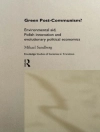Since the early days of the American republic, political thinkers have maintained that a grossly unequal division of property, wealth, and power would lead to the erosion of democratic life. Yet over the past thirty-five years, neoconservatives and neoliberals alike have redrawn the tenets of American liberalism. Nowhere is this more evident than in our current mainstream political discourse, in which the politics of economic inequality are rarely discussed.
In this impassioned book, Michael J. Thompson reaches back into America’s rich intellectual history to reclaim the politics of inequality from the distortion of recent American conservatism. He begins by tracing the development of the idea of economic inequality as it has been conceived by political thinkers throughout American history. Then he considers the change in ideas and values that have led to the acceptance and occasional legitimization of economic divisions. Thompson argues that American liberalism has made a profound departure from its original practice of egalitarian critique. It has all but abandoned its antihierarchical and antiaristocratic discourse. Only by resuscitating this tradition can democracy again become meaningful to Americans.
The intellectuals who pioneered egalitarian thinking in America believed political and social relations should be free from all forms of domination, servitude, and dependency. They wished to expose the antidemocratic character of economic life under capitalism and hoped to prevent the kind of inequalities that compromise human dignity and freedom-the core principles of early American politics. In their wisdom is a much broader, more compelling view of democratic life and community than we have today, and with this book, Thompson eloquently and adamantly fights to recover this crucial strand of political thought.
In this impassioned book, Michael J. Thompson reaches back into America’s rich intellectual history to reclaim the politics of inequality from the distortion of recent American conservatism. He begins by tracing the development of the idea of economic inequality as it has been conceived by political thinkers throughout American history. Then he considers the change in ideas and values that have led to the acceptance and occasional legitimization of economic divisions. Thompson argues that American liberalism has made a profound departure from its original practice of egalitarian critique; it has all but abandoned its antihierarchical and antiaristocratic discourse. Only by resuscitating this tradition can democracy again become meaningful to Americans.
The intellectuals who pioneered egalitarian thinking in America believed political and social relations should be free from all forms of domination, servitude, and dependency. They wished to expose the antidemocratic character of economic life under capitalism and hoped to prevent the kind of inequalities that compromise human dignity and freedom—the core principles of early American politics. In their wisdom is a much broader, more compelling view of democratic life and community than we have today, and with this book, Thompson eloquently and adamantly fights to recover this crucial strand of political thought.
Inhaltsverzeichnis
Acknowledgments
Introduction. The Political Dimensions of Economic Inequality
1. The Critique of Economic Inequality in Western Political Thought: The Continuity of an Idea
2. The Liberal Republic and the Emergence of Capitalism: The Political Theories of Optimism and Radicalism
3. The Transformation of American Capitalism: From Class Antagonism to Reconciliation
4. Embracing Inequality: The Reorientation of American Democracy
Conclusion. Restating the Case for Economic Equality
Notes
Bibliography
Index
Über den Autor
Michael J. Thompson is assistant professor of political science at William Paterson University. His articles have appeared in
New Political Science,
Review for Radical Political Economics,
Critical Sociology,
New Politics,
Owl of Minerva,
European Journal of Social Theory, and
Philosophy and Literature. He is the founder and editor of
Logos: A Journal of Modern Society and Culture and the editor of
Islam and the West: Perspectives on Modernity as well as
Confronting the New Conservatism: The Rise of the Right in America.












